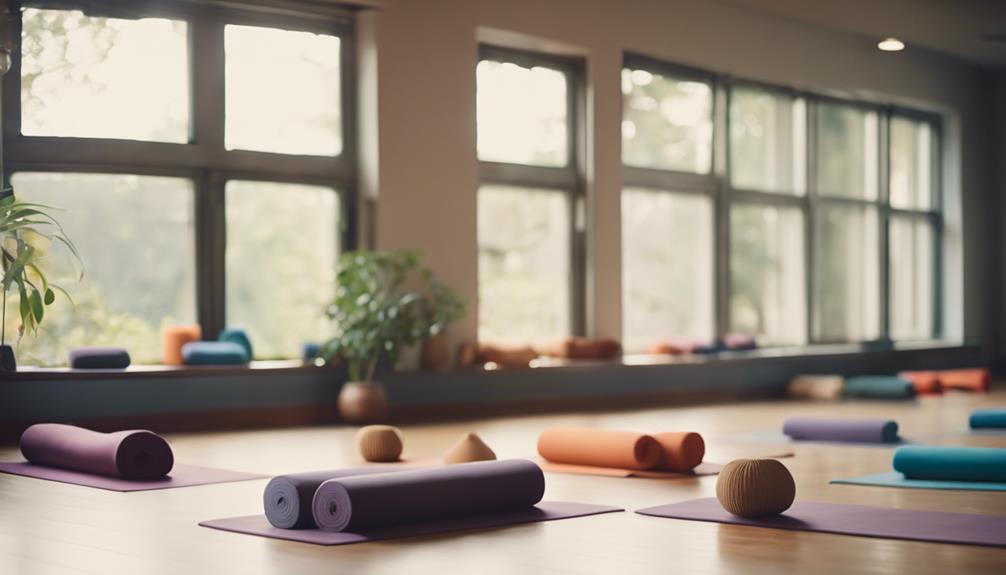Yoga has gained immense popularity over the years as a holistic approach to physical and mental well-being. Many practitioners wonder, “Should I do yoga every day?” This article delves into the benefits of daily yoga practice, potential drawbacks, and how to establish a routine that works for you.
Understanding Yoga and Its Benefits
Yoga is an ancient practice that combines physical postures, breathing techniques, and meditation to enhance overall health. When considering whether you should do yoga every day, it’s essential to understand its myriad benefits. Daily yoga practice can improve flexibility, strength, and balance. It helps to reduce stress, enhance mental clarity, and promote emotional well-being. Furthermore, yoga has been linked to lower blood pressure, improved cardiovascular health, and better sleep quality.
By incorporating yoga into your daily routine, you can cultivate a sense of mindfulness that extends beyond the mat, positively affecting various aspects of your life. This holistic approach to health may inspire you to make other positive lifestyle changes, such as adopting a healthier diet or engaging in regular exercise.
Physical Benefits of Daily Yoga Practice
One of the primary reasons people consider doing yoga every day is the physical benefits it offers. Regular yoga practice enhances flexibility, which is crucial for maintaining joint health and preventing injuries. As you progress in your practice, you may notice improvements not only in your flexibility but also in your strength and endurance.
Daily yoga can also aid in weight management. Certain styles of yoga, such as Vinyasa or Power Yoga, elevate your heart rate and help burn calories. Moreover, yoga encourages mindfulness towards your body and dietary choices, which can lead to healthier eating habits. The overall physical benefits of yoga make a compelling case for incorporating it into your daily routine.
Mental Clarity and Emotional Well-Being
Yoga is not just about physical postures; it also plays a significant role in mental health. Practicing yoga daily can enhance your focus, concentration, and cognitive function. The combination of breath control and meditation helps to clear the mind, reduce anxiety, and promote emotional balance.
Research has shown that regular yoga practice can lower levels of cortisol, the stress hormone, leading to a greater sense of calm and relaxation. If you’re grappling with stress or anxiety, incorporating yoga into your daily routine can offer a natural and effective remedy, making it easier to manage life’s challenges.
Creating a Daily Yoga Routine That Works for You
If you’re contemplating whether you should do yoga every day, the first step is to create a routine that suits your lifestyle. Start by determining how much time you can dedicate to yoga each day. Even a short, 15-minute practice can be beneficial and help you develop the habit.
Consider varying your yoga sessions to keep things interesting. You might choose to focus on gentle Hatha yoga one day and a more vigorous Ashtanga session the next. This variety will not only keep you engaged but also ensure that different muscle groups are being worked. Remember, it’s essential to listen to your body and choose practices that feel good for you, especially if you’re just starting.
Potential Drawbacks of Daily Yoga Practice
While the benefits of yoga are numerous, it’s important to consider potential drawbacks. For some individuals, doing yoga every day may lead to overuse injuries, especially if proper alignment and techniques are not observed. It’s crucial to maintain a balanced approach and allow your body the rest it needs to recover.
Additionally, if daily yoga practice becomes a chore rather than a joy, it may lead to burnout. The key is to maintain a flexible attitude towards your practice. If you feel fatigued or unmotivated one day, it’s okay to take a break or opt for a restorative session. The goal is to cultivate a loving relationship with your practice, rather than feeling obligated to perform consistently.
Incorporating Mindfulness and Meditation
In addition to the physical aspects of yoga, incorporating mindfulness and meditation into your daily practice can enhance the benefits even further. Mindfulness encourages you to be present in the moment, which can help reduce stress and improve emotional resilience. You might choose to spend a few minutes at the beginning or end of your yoga session practicing mindful breathing or meditation.
This combination of movement and mindfulness creates a powerful synergy that promotes overall well-being. If you’re exploring whether you should do yoga every day, consider integrating these elements to deepen your practice and enhance its benefits.
Choosing the Right Style of Yoga
When deciding whether to do yoga every day, selecting the right style of yoga is crucial. Various styles cater to different needs and preferences. For example, if you seek a calm and restorative practice, Yin Yoga or Gentle Yoga may be ideal. If you’re looking for a more physically demanding session, consider Power Yoga or Vinyasa.
Research different styles and see what resonates with you. Many practitioners find joy in mixing styles throughout the week, allowing for a well-rounded experience. The right style can keep your practice enjoyable and sustainable, making it easier to commit to daily sessions.
Conclusion: Should You Do Yoga Every Day?
Ultimately, the decision to practice yoga every day is a personal one. The benefits of daily yoga—ranging from improved physical health to enhanced mental clarity—are compelling reasons to consider making it a regular part of your routine. However, it’s essential to approach your practice with mindfulness and flexibility, ensuring that you listen to your body and adapt as needed.
Whether you choose to dedicate a few minutes each day or engage in longer sessions, the key is to find joy in your practice. By doing so, you can cultivate a sustainable daily yoga routine that nourishes your body, mind, and spirit. So, the question remains: should you do yoga every day? If it brings you joy and enhances your well-being, the answer is a resounding yes!What Are The 8 Limbs Of Yoga
